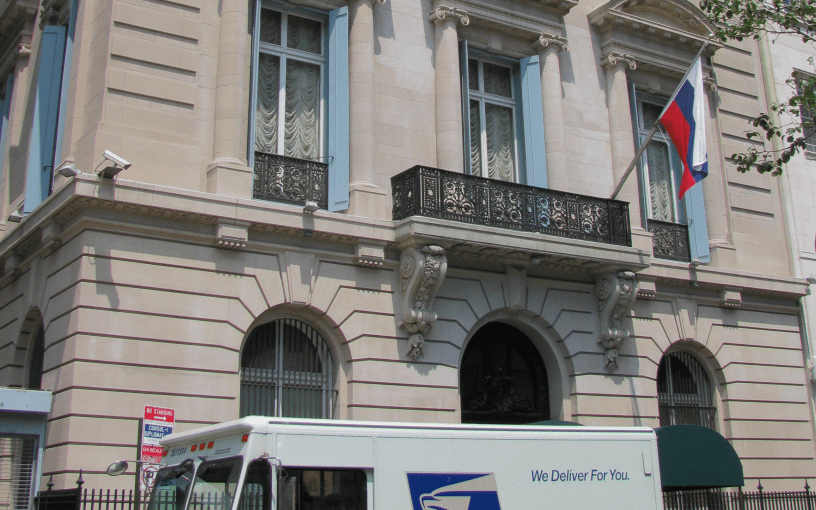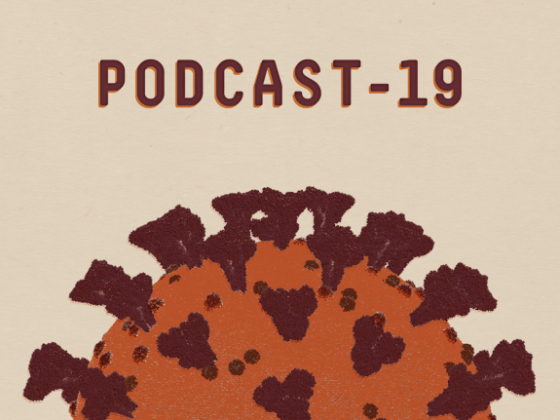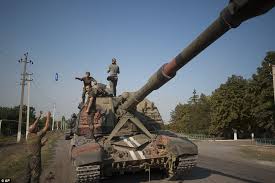(PONARS Eurasia Commentary) How do Russians in the West want to influence their country’s future? On July 1, Anton Konev drove two and a half hours from Albany, NY, to cast his ballot at the Russian Consulate in Manhattan. Like millions of other Russian citizens, he participated in the country’s constitutional referendum on new amendments. It was also a referendum on allowing Vladimir Putin to remain president for another sixteen years, which he secured with over 78 percent of the vote.
According to the now-defunct 1993 constitution, Putin was required to step down after the completion of his fourth term in 2024. But the proposed amendment nullified the terms he has served, allowing him to stand for two more consecutive terms—until 2036. Therefore, the referendum appears to have defined Russia’s political culture for another generation. While approval was seen by many as a foregone conclusion—“Vse vsyo ponimayut” (“everyone understands everything”)—the referendum lost out in a key constituency: Russians living in the West.
I spoke with Russians living in the United States, Britain, France, Canada, and the Czech Republic this past June to learn how and why they would vote, or if they would sit this one out. I discovered that there was more than meets the eye to all sides among global Russians.
“All of the proposals are in absolute harmony.”
This is what Nomma Zarubina said in a positive take on the referendum. She is an NGO representative at the United Nations in New York City, a graduate student at Baruch College, and served as an election observer at the Russian Embassy in Washington on July 1. In explaining her support for the changes, she said, “I am a nineties kid. I grew up during perestroika, and like many of my generation, I have negative feelings toward those years.”
Nomma now describes herself as a conservative who wants to advance Russia’s positive image abroad. With Russian sovereignty as a measuring stick, the new constitution received her approval. One of its high marks for her: “The independence of the court system [from international law]. I have little faith in the objectivity of international courts.”
She also recognized Putin’s term nullification as the most divisive point. “I can’t say that the regular rotation of presidents has prevented stagnation in other countries… A country can be represented by a president, a queen, an emperor, or a chancellor. The most important thing is how the system works overall.” Many government supporters pointed to Angela Merkel, Germany’s chancellor of fourteen years, as a case of democratic longevity.
Another amendment drawing interest from Russians abroad is Article 69-3 that pledges the government to “support to compatriots living abroad in exercising their rights, ensuring the protection of their interests, and preserving the all-Russian cultural identity.”
Moscow’s policy since the 1999 Law on Compatriots has been to bridge the chasm between the motherland and its émigrés it inherited from the Cold War. One milestone was in 2007 when the Russian Orthodox Church in Moscow reconciled with the New York-based Russian Orthodox Church Abroad. The next one is the new constitution.
“If Putin issued a decree declaring himself monarch, I would not see any difference.”
This is how Tanja Nyberg of the Magnitsky Act Initiative saw it. She described the pro-government amendments as “legally illiterate nonsense.” When the vote started in Russia, the opposition activist had not yet chosen a strategy. To vote or to boycott was the real question for the “against” camp.
In Washington, DC, Nyberg picketed the Russian Embassy in protest of the noncompetitive 2018 presidential election that produced Putin’s fourth term. So did Gleb Latnik, a human rights activist and member of the local LGBT community. He said his strategy would depend on a statistic that was impossible to estimate, not least due to fears of the coronavirus, which is turnout. “If a small percentage of people plans to vote, then we need a boycott, crashing the result with a meagre turnout. If it will be big, then we need to go ahead and vote against.” On which way to choose, he said that the Russian opposition in America is divided, and “no one has bothered to look at the statistics.”
It is difficult to find the referendum’s real turnout in Russia’s 68 percent figure, marred as it was by the impact of COVID-19, distance voting, and car trunk polling stations that set a new low for the Russian democratic process. However, voting in Russian embassies and consulates proceeded with far more integrity.
One effect of this referendum I observed on the global Russian community was a ripple of division. The West, unsurprisingly, hosts opponents of Putin’s regime alongside his supporters. However, unlike previous presidential elections, the opposition itself is divided on what to do. Days away from the vote, many Russians I spoke with were still paralyzed with indecision.
Alexey Navalny, the most popular opposition leader in Russia who was banned from running for president in 2018, called his supporters to boycott that election. In 2020, while decrying the referendum’s illegitimacy and its supporters as government sellouts, Navalny had not taken an actual position on voting. Many of his followers were left scratching their heads.
According to Maria Snegovaya, a Fellow at the Center for European Policy Analysis in Washington, this was one reason for the opposition’s indecision. And she said that it was a shame that “the combination of the economic crisis, people’s tiredness with Putin, and the presence of only a single option against him (as opposed to the multitude of candidates in a typical election) [gave] the opposition a unique chance in this referendum… The more ‘against’ votes, the harder to falsify them. I would consider even 30 percent ‘against’ to be a huge victory.”
Natasha Buryka, a graduate of the Université Paris-Est Créteil and a specialist on modern political systems, leaned toward not voting. She exemplified one factor described by Snegovaya: exhaustion. “I do not want to participate [in the referendum] even though I am absolutely not apolitical, and I’ve voted in all the elections until now… Unfortunately, I am sure this is the last nail in the coffin of Russian democracy.” Apart from the strategy, many young Russians abroad seemed to agree that the new constitution opens a darker page in their motherland’s history.
Yaroslava Zonova, an ethnologist and Russian folklore expert living in Maryland, expected the referendum to go without a hitch for the government. “And after these amendments, new ones will follow, decreasing people’s rights and freedoms,” she wrote in dejection. Yaroslava had no intention to vote. Neither did Sabina Vagapova, a student at George Mason University, half an hour from the Russian Embassy’s polling station in Washington. “I believe that there is no place in the 21st century for a totalitarian regime, and [the amendments] will drag Russia down,” she said.
But Anton Konev made the much longer drive to vote “no.” He is a former legislative director in New York’s State Assembly and Senate, and also organized U.S.-Russian public diplomacy projects like the Albany-Tula Alliance. As the current head of the Young Russian Democrats, he has a ground-up view on politics and a long list of issues with his native country’s proposed constitution. “After this, you can drop ‘Federation’ from ‘Russian Federation,’” he said. “The amendments will destroy local autonomy and responsibility [of officials] to local constituents.” He believes that the curtailing of the Federation Council, the parliament’s upper chamber—introducing thirty presidentially-appointed senators and relegating it to ‘approving,’ not appointing, high nominees—solidifies the power vertical in Russia. So does the proposal on presidential immunity: “It should be the other way around: the president should know that after leaving his post, he will become a regular citizen and answer for everything he did.”
Pandemic-related evacuations by Russian citizens meant that this year’s voting abroad was especially underwhelming, according to Alexander Morozov, a political scientist at the Boris Nemtsov Academic Center for the Study of Russia at Charles University, Prague. “The constitutional amendments do not directly affect the ‘Russian Czech Republic,’” he said. “Russian citizens in the country have three concerns: a mutual Czech-Russian pension agreement, open EU-Russian borders, and stable financial connectivity between Russia and the rest of the world relating to sanctions.” When I asked about the émigré opposition strategy, he replied that “there are practically no debates about this referendum in Russian-speaking Prague. This is different from the 2018 election when people discussed whether to vote for [Ksenia] Sobchak or not.”
One of the most dynamic observations I had was with a voice from London: Nick, a college graduate and an activist in the UK’s Coordinating Council of Young Russian Compatriots, another diaspora organization aligned with Russian diplomacy. He asked that I not post his real name. He recalled the iciness and tension the British Russian community felt after the Skripal poisonings in March 2018. According to him, the UK’s retaliatory measures, including the declared eviction of 23 Russian diplomats, reinforced local Russians’ support for Putin in the presidential election days later. They also backed his defiance of the West over Crimea. For many, 2018 was a protest vote against London, which they saw as treating Russia unfairly. Nick had cast his ballot for Putin.
However, now he voted against the proposal solidifying Putin’s grip on the presidency. “Two years have passed. Everyone sees that the president is consolidating all the power for himself. And that’s for the next sixteen years, while he has already had it for twenty. It’s like imperial times, and I’m not talking about the Soviet Union.” He believed that most Russians in Britain would do the same, even as many credited Putin’s team with economic growth in the 2000s and making Russia a power to be reckoned with.
A Vote Beyond Ideology
The referendum’s result, with the new constitution on sale in bookstores for days in advance, seemed hardly worth discussing. But for global Russians in particular, one amendment hit personally: Article 81-2, now disqualifies anyone who ever held foreign citizenship, permanent residence, or even lived abroad within 25 years, from becoming president. Lesser restrictions are introduced for high-level officials and cabinet members. This pours cold water over-ambitious young Russians hoping for a homecoming into the post-Putin political elite, similar to what happened in the newly-independent Baltic states. One of my conversations highlighted that to merely focus on ideology would miss the point.
Victor is a Russian-Canadian college student in Vancouver who also requested his name be modified. “Everyone understands how this referendum will end,” he said. His motivation to vote was not political but pragmatic. While he said it is unlikely, Victor suspected that the ballots would not be secret. “If I know that nothing will change, then I better just vote ‘for’ and I will have 1 percent less chance of problems down the road. If my right of voice counts for nothing, I will turn this toward my interests.”
The referendum that Victor described was not an act of political agency, but a voluntary ritual. It was like pinning a St. George’s Ribbon to a Duma member’s lapel: a tribute to the zeitgeist that can conceal any range of true political beliefs. “It is better to vote than not to vote. It shows you’re in the game. Bonus points if you vote for the ‘right’ choice.” He said all of this with a confident smile.
Despite living his whole life in Canada, Victor cannot wait to move to Russia and start a business career. His cold view of political realities coexists with a deep love of Russia and its “authenticity” in a way that reminds me of Danila Bagrov, the main hero of the cult movie Brother. “A Western person will never understand this,” Victor concluded.
What to Do Next?
As the pro-Kremlin result showed, the opposition’s exhaustion continues to work for the Kremlin’s advantage. According to Snegovaya, “the boycott has proven to be an ineffective strategy not just in Russia, but in other countries. Governments rarely react to them.”
In the 2018 election, many global Russians rallied around the flag. But in 2020, the referendum drew mixed reactions. While RBC triumphantly declared that “the majority of Russian citizens abroad supported amendments to the constitution”—referring to those in post-Soviet countries—it reported that Russians in the West were heavily opposed. Over 80 percent voted “against” in London and Prague, and 62 percent “against” in New York. It would be folly for the Kremlin not to notice this flip from 2018.
In April, Putin’s approval rating dropped to 59 percent, the lowest point since he became president twenty years ago. Apart from his hands-off management of the coronavirus pandemic, one reason may be that he seems to be tripping over words he himself said at the end of his second term in 2008: “On my first day as President of the Russian Federation, I took the position that I will not violate the current constitution… To consider that after getting into some boss’s chair, it should belong to you until the grave, I consider unacceptable.”
Yet that is exactly how many Russians see the “nullification” amendment, including the popular YouTube journalist Yuri Dud’. However, Dud’ confessed on June 20 that he was not likely to decide on his opposition strategy until the last moment, a warning sign for liberal-democratic solidarity.
Conclusion
The tide has turned for Russians in the Euro-Atlantic, and the quiet cynicism of young voters could be a harbinger of what is to come in Russia proper. Nick and Victor show that even as the new constitution is approved, or if the Kremlin’s approval glides steadily in Russian polls, the results should be taken with a grain of salt. Citizens now expect to be monitored: analysts should make judgments accordingly. But also, there is no guarantee that people from “Putin’s camp” will stay there indefinitely.
Alexander Naumov is a double B.A. candidate at George Mason University studying International Politics and Russian & Eurasian Studies. He lives in northern Virginia and is a native of Yoshkar-Ola, Russia.
Homepage image credit.











